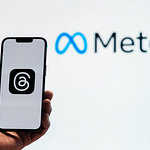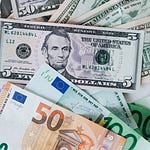In this episode, we explore the potential soft landing, consumer spending resilience, Tesla's AI ambitions in the EV market, Boeing's challenges, and the big week ahead in big tech earnings.
The episode is based on yesterday's newsletter which is available on Substack.
Solid Start
Summary: According to Visa, the economy is off to a solid start in 2024 as consumer spending remains resilient. Growth has moderated some from its peak levels, and inflation hasn’t completely gone away. Has the plane officially landed or is there still some recession risk?
A transcript of this podcast, with relevant images and quotes, is available for all subscribers after the show notes below. Our podcast is available on Apple Podcasts, Spotify, Google Podcasts, and Amazon Music.
Show Notes
00:00:00 Introduction
00:00:36 Is It a Soft Landing for the Economy?
00:00:52 Consumer Resilience
00:01:44 Inflation and the Fed's Tightrope
00:02:29 Luxury Spending Unfazed
00:04:50 Tesla's AI Drive
00:06:29 Elon Musk's Power Play
00:09:03 Boeing's Turbulence
00:11:39 Big Tech’s Week of Truth
Introduction
[00:00:00] Scott: Welcome everyone to a new episode of The Transcript podcast. We are back for 2024. Apologies for the delay and podcasts, but we've got earnings season off to a roaring start already, and this week we sent out a new newsletter that captured some of those earnings call insights.
In the Macro section this week, we found that the economy is still pretty strong, which is what we've seen throughout this earning season. Consumer spending has been resilient. To use a word that's been used over and over again in earnings calls and, it looks like the soft landing may have happened, honestly. What do you think, Erick?
Is It a Soft Landing for the Economy?
[00:00:36] Mokaya: Yeah, I think that's the key takeaway. It feels like everyone feels like the plane landed without any mishap. It didn't do a Boeing. So I think it feels like it's okay so far. There's nothing that is standing out, at least since the beginning of the year that makes us think there's anything that's gone wrong.
Consumer Resilience
[00:00:52] Scott: Do You think we've had a soft landing or not?
[00:00:56] Mokaya: That's really hard to tell, but I feel like we've landed softly so far. You can't tell what's going on far ahead, especially with elections coming up. I think there was a quote there that said around 4 billion people around the world are having elections this year.
So that's a substantial risk that is in the process. And of course, the issues to do with the Red Sea and the oil is flaring up. Some geopolitical tensions around the world, which seem to be easing a bit. But I feel so far, looking at the data, looking at the quotes, everybody's a little cautious, but it seems like there's a general agreement that we are in a soft landing. That seems to be the consensus, at least from the first three weeks of reading earnings transcripts this year. Do you agree?
Inflation and the Fed's Tightrope
"While raw materials will likely be a benefit for us, other costs, including wages, health care, energy, and transportation are expected to be up in the mid to high-single-digit range in 2024. I will remind you that these categories also inflated in 2023. Working with our customers, we delayed additional Paint Stores price increases last year given the pricing actions that we took in 2021 and 2022. We cannot however ignore these escalating costs indefinitely. As I mentioned earlier, Paint Stores Group is implementing a 5% price increase effective February 1st." - Sherwin-Williams (SHW 0.00%↑) President & GM of Retail - North America Heidi Petz
[00:01:44] Scott: It definitely seems like a consensus. Inflation has certainly come down, although there's still some lingering amounts of inflation that we're seeing and calls in the insurance industry are talking about it. Sherwin Williams was talking about. Still having inflation is not necessarily in raw materials, but in labor costs and things like that. So there are still some areas of services inflation, but it certainly doesn't seem like the type of inflation that the Fed needs will feel like it needs to actively fight. And so the interest rates are already in a somewhat restrictive position as the Fed has talked about before. And so it'll be interesting to see as the Fed starts talking, they really have been pretty quiet for the last few weeks, but as they start talking again and understanding how their mindset is evolving around this data as well is going to be the story of, at least the quarter, if not the year.
Luxury Spending Unfazed
[00:02:36] Mokaya: I think they are meeting this week. So that would be interesting how they start the year. But my feeling is that it's another pause or nothing really has changed. I think it's been seven months or so the Fed pauses. So nothing much has happened.
But maybe something that stood out for me is that regards consumer spending, it seems to be, especially among the affluent, they're still doing well. LVMH had a record year in 2023. And American Express. They're growing, total billed business is growing at 9%. And then you look at Visa, they're saying that US payments grew around 5 percent year over year last year. Doesn't feel like we're really in that recession, at least for the kind of consumers that Visa, American Express, and LVMH serve so far. So it doesn't feel like there's anything to be worried about in that end.
[00:03:24] Scott: Yeah, honestly, the quotes from Visa and American Express in terms of volumes that year over year payment volume at Visa is still at 8 percent growth. U. S. payments volume grew 5 percent year over year is what they said. American Express showed a 9 percent growth in billed business on an FX-adjusted basis. Those are very large comps, so we may have even stronger growth than is really being recognized right now.
"We are off to a solid start in 2024. Consumer spending remained resilient with first quarter year-over-year payments volume growth at 8%, U.S. payments volume grew 5% year-over-year, international payments volume grew 11%. Cross-border volume, excluding intra-Europe, rose 16% year-over-year in constant dollars with cross-border travel at 142% of 2019 levels, up from 139% in the fourth quarter... Consumer spend across all segments from low- to high-spend has remained relatively stable. Our data does not indicate any meaningful behavior change across consumer segments." - Visa (V 0.00%↑) CFO Chris Suh
[00:03:51] Mokaya: Yeah. The area of concern, though, has been China of late. The geopolitical situation that they have with the U. S. If you look at some of the companies that were reporting, especially semiconductors, they're not factoring in large growth in terms of China because of the restrictions that have happened because of geopolitical issues.
But then also that there is a bit of slowdown growth in China. There is an anti-corruption drive that is slowing down business over there. But perhaps maybe a transition to the other sections that we had. One of the quotes was from Elon Musk acknowledging that the auto companies, especially in China, they're very competitive. And the only way the U. S. companies are going to survive is if there are restrictions in trade in that regard. That stood out for me as an acknowledgment of the forcefulness of the competition that is out there in EV markets and car companies generally.
[00:04:41] Scott: Yeah, it's interesting because they are his strongest competition. And in the U. S. we're not seeing a lot of Chinese car companies. I don't know in Sweden if you're seeing Chinese cars.
Tesla's AI Drive
[00:04:50] Mokaya: I was surprised. I was surprised at the airport. I did see a BYD and I've never seen a BYD in my life. So I think they're forcefully entering the European market so far.
[00:05:00] Scott: Yeah. Ford's CEO has been talking about how they are now the largest exporter of vehicles in the world, which is incredible as well. So U. S. markets may not be really recognizing how strong Chinese cars are as competitors from an E. V. standpoint. And so that is definitely something that could become appreciated, especially given that Elon's talking about it. Those are his competitors again.
[00:05:26] Mokaya: Something else that stood out also from Elon Musk was about the investments in AI and how he wants a bit of more share in the company because he is making it into a wild beater in terms of AI. What's your take on that? 25%?
"Yeah, I guess. Let me explain what my concern is here, which is that I see a path to creating an artificial intelligence and robotics juggernaut of truly immense capability and power. And my concern would be, I don't want to control it. …So I want to have enough to be influential. Like, if we could do a dual-class stock, that would be ideal. I'm not looking for additional economics. I just want to be an effective steward of very powerful technology. And the reason I just sort of roughly picked approximately 25% was that's not so much that I can control the company, even if I go bonkers and if I'm, like, mad, they can throw me out. But it's enough that I have a strong influence. That's what I'm aiming for, is a strong influence, but not control. If there's some way to achieve that that would be great." - Tesla (TSLA 0.72%↑) CEO Elon Musk
[00:05:39] Scott: Yeah. It's really interesting, right? I actually think Tesla shareholders, because he says he doesn't care about the economics, he just wants the voting power. I almost think it's a good deal for Tesla shareholders to give him 25 percent voting rights. Like just give him a share class that has extra voting rights. Most people who are invested in Tesla are invested in it for Elon Musk anyway. And if he basically says, okay, I'll take 25 percent control of the company, no change in economics, and in exchange, I'll build Tesla into an AI powerhouse, you have this very strong play on AI, which Tesla's you know, what, 500 billion market cap now or less, compared to Microsoft's a 3 trillion dollar market cap. It could be a really meaningful catalyst for Tesla.
[00:06:26] Mokaya: So to keep him, give him his carrot and let him eat it.
Elon Musk's Power Play
[00:06:29] Scott: Yeah. I think the other thing that was in the Tesla earnings call was about AI, that he wants to build AI and think of Tesla as an AI and robotics company. Obviously, Tesla is very premium priced compared to other automakers, but it seems to me that the price is mostly reflecting the auto business, not anything that's going on in AI or robotics at Tesla. So there is additional upside to Tesla stock from that perspective. And yeah, several times on the call, Elon in his Elon way said, I used to not see a path to being the most valuable company in the world, but now I see a path to becoming the most valuable company in the world at Tesla. And if all of that gets resolved and Tesla starts trading like an AI company, it really could be a lot of potential value unlocked at the company for the stock, basically.
[00:07:26] Mokaya: Yeah, and guess who's selling shovels to Tesla? NVIDIA. I noticed that there. That was a bit of a significant data point for me.
[00:07:35] Scott: Yeah, NVIDIA is selling to everybody, right? But Elon's comments on AI, NVIDIA, he downplayed the ability of Dojo to be able to compete with the NVIDIA chips was an interesting data point I noticed and then also talked about a few billion dollars a year and spend as table stakes at this point in order to compete in AI, is very interesting. In the AI marketplace in general, you just need a lot of scale in order to compete. It's not a world for startups really. It's actually very capital-intensive.
[00:08:09] Mokaya: Yeah, to build anything worthwhile right now, it raises the stakes in terms of who can compete in this kind of business. It means big tech will keep being the magnificent seven they are, but they stick here.
[00:08:24] Scott: I think that's what people are betting on. At the same time I think we have in there a very negative data point for Apple which was that Netflix isn't even planning on creating an app for Apple's vision pro. Seems like a bit of a slap in the face. I recognize that they are competitors of sorts because Apple is in the content generation business now, but it still seems like if it were truly a flagship product, a blue chip supplier like Netflix would be on the platform. So I think expectations are extremely low for the vision pro.
"Not by any unwillingness or lack of desire to do that, but even when you note we look at as close to ubiquity on devices perspective, the decisions that lead to that are we try and be very rigorous about, “What’s the effort to integrate on any given set of devices and what’s the benefit for the members that we serve?”. We have to be careful about making sure that we’re not investing in places that are not really yielding a return, and I would say we’ll see where things go with Vision Pro. Certainly we’re always in discussions with Apple to try and figure that out but right now, the device is so subscale that it’s not really particularly relevant to most of our members." - Netflix (NFLX 0.00%↑) Co-CEO Greg Peters
[00:08:57] Mokaya: Have you acquired it? Have you acquired one?
[00:09:00] Scott: I have not. I haven't gotten a chance to play with one yet. Have you?
[00:09:00] Mokaya: Not yet. It will come much later, I think, in the process. But I feel like the companies that are actually not creating apps for the Apple Vision Pro are mostly companies that have a bone to pick with Apple, like Spotify, and Netflix.
I feel like they are reaching a point where they're like, okay, you are becoming more of a gatekeeper for us. And they don't want to pay the 30%. So I think that's a bit of a hindrance for them. But it does feel like the uptake for vision pro may not be as huge as maybe expected of an Apple product normally in the scale of iPhone. It’s also an interesting point.
Boeing's Turbulence
So maybe one more point I wanted to point out is how unhappy Boeing customers are and that some airlines are considering Airbus. That's quite a significant point to check out. They're telling Boeing to get their act together. That's quite significant and strong language to see in earnings calls sometimes.
[00:09:58] Scott: Yeah, I'm glad you brought it there because that really stood out to me as well. The language that Boeing's customers were using, to your point, was some of the strongest language I've seen of a customer in that institutional space condemning a supplier. We're going to hold them accountable. Boeing needs to get its act together, is what American Airlines said about it. And then the Ryanair comment from last week as well was like, this is totally unacceptable and it is. And I think the headline today in the Wall Street Journal is that Boeing shipped that plane, like without important bolts in the doors and you add all that up. Not only are they losing the confidence of their customers, their direct customers, the airlines, they're also losing the confidence of the airlines’ customers, the flyers and so from that standpoint, Airbus has an opportunity to take a lot of market share here.
"We're going to hold them accountable. Boeing needs to get their act together. The issues that they've been dealing with over the recent period of time, but also going back a number of years now is unacceptable. And no matter who it is, all of Boeing needs to come together and to get back on the right track" - American Airlines Group (AAL -0.21%↓) President Robert Isom
Who knows how Boeing really rehabs itself from here? It seems like the CEO has got to go or something like that. There needs to be a change in leadership. There needs to be something big. Some big cleansing at Boeing it seems in order to really rebuild the confidence among their customers and the broad public.
But at the same time, it's not like this is a hyper-competitive industry. You basically have a duopoly, so there's not really anywhere else to go. So from an investment standpoint, I look at this and go, there's a lot of negative sentiment on Boeing in some cases, but their fundamentals are extremely weak.
[00:11:27] Mokaya: It's Big Tech Earnings Week, any pick on top of your head, things that you're looking out for? It's the week of, I think someone called it the Super Bowl of tech earnings season.
[00:11:36] Scott: Apple. I'm very curious to see what's going on at Apple right now.
Big Tech’s Week of Truth
[00:11:39] Mokaya: I saw a chart that said nothing is growing at Apple now, and that's a bit concerning.
I don't know.
[00:11:46] Scott: It's the big tech company that has very little presence in AI, and that's the biggest catalyst within the investment world right now.
[00:11:55] Mokaya: And Microsoft has been growing so fast as to overtake them in terms of market cap and all. Microsoft reports this week also so really interesting to see what they are doing. I don't like their Bing, by the way, the new Bing, I tried it, and I went back to Google. So I hope they're doing a little more dancing this week.
[00:12:14] Scott: It is hard to get away from Google. They've got such a position, but, it's interesting that you mentioned Microsoft did a 3 trillion market cap right now. It was a pretty good quote that you found this week about IT budgets. The world tax spending is expected to be six and a half trillion by 2027 with three trillion spent on AI. So this may be the sorts of dollar numbers that people are putting into their models as they're thinking about what the value of these companies are.
[00:12:46] Mokaya: It's AI. Let's see who mentions AI the most. Like that's the cut at least in earnings calls. Yeah. So I think that's a good place to close up this week. Thank you so much. It's our first. We should do this more often, Scott. It's our first podcast for 2024. Looking forward to doing a bit more and covering the earnings season. Make sure to subscribe and to keep tuned in to The Transcript as we cover the earnings season. Bye for now.
[00:13:13] Scott: Bye.











